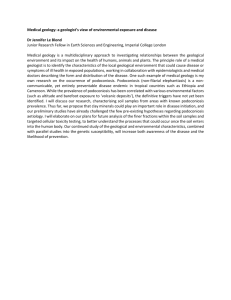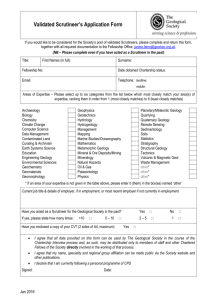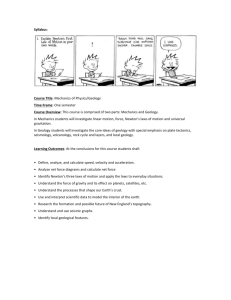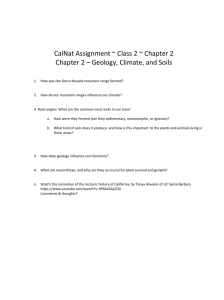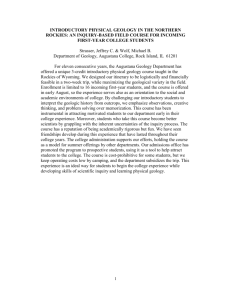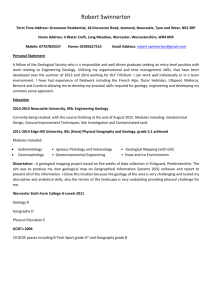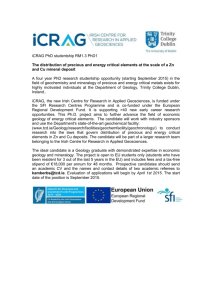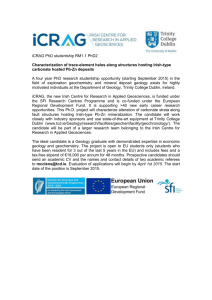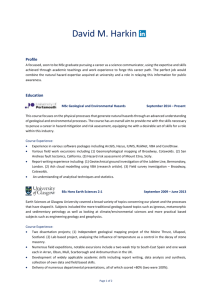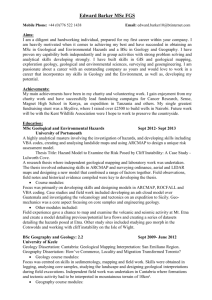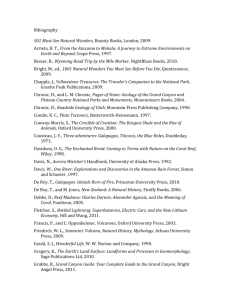R - Geology Rocks
advertisement
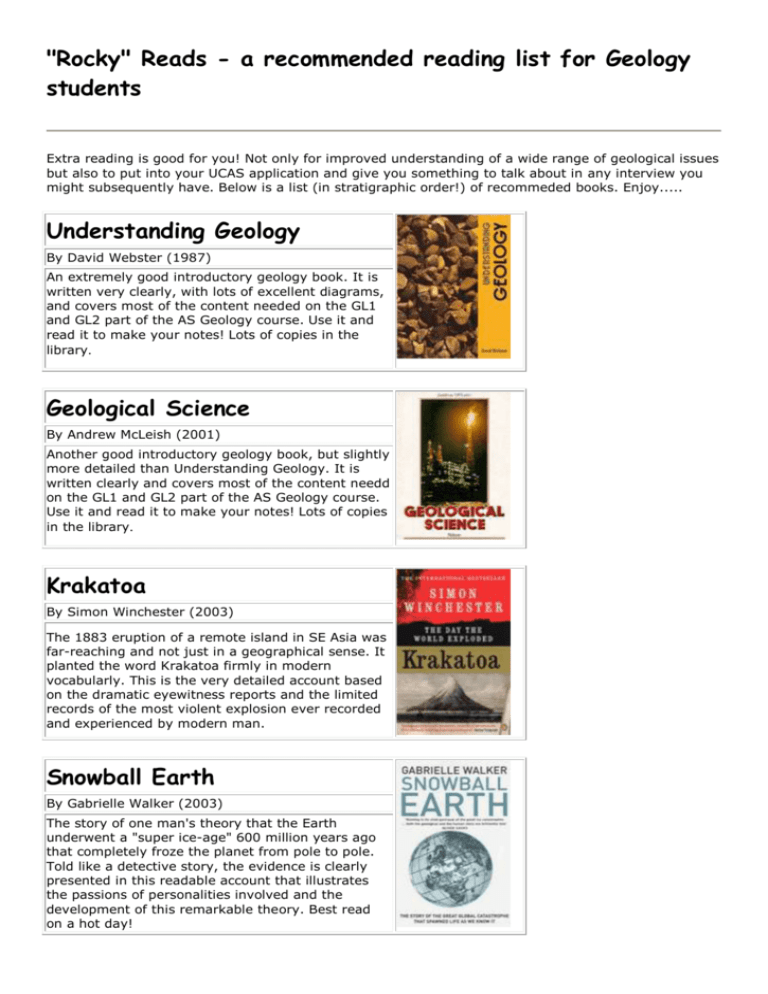
"Rocky" Reads - a recommended reading list for Geology students Extra reading is good for you! Not only for improved understanding of a wide range of geological issues but also to put into your UCAS application and give you something to talk about in any interview you might subsequently have. Below is a list (in stratigraphic order!) of recommeded books. Enjoy..... Understanding Geology By David Webster (1987) An extremely good introductory geology book. It is written very clearly, with lots of excellent diagrams, and covers most of the content needed on the GL1 and GL2 part of the AS Geology course. Use it and read it to make your notes! Lots of copies in the library. Geological Science By Andrew McLeish (2001) Another good introductory geology book, but slightly more detailed than Understanding Geology. It is written clearly and covers most of the content needd on the GL1 and GL2 part of the AS Geology course. Use it and read it to make your notes! Lots of copies in the library. Krakatoa By Simon Winchester (2003) The 1883 eruption of a remote island in SE Asia was far-reaching and not just in a geographical sense. It planted the word Krakatoa firmly in modern vocabularly. This is the very detailed account based on the dramatic eyewitness reports and the limited records of the most violent explosion ever recorded and experienced by modern man. Snowball Earth By Gabrielle Walker (2003) The story of one man's theory that the Earth underwent a "super ice-age" 600 million years ago that completely froze the planet from pole to pole. Told like a detective story, the evidence is clearly presented in this readable account that illustrates the passions of personalities involved and the development of this remarkable theory. Best read on a hot day! A Short History of Nearly Everything By Bill Bryson (2003) A zany attempt to understand everything in natural science from the Big Bang to now! This is a popular science book that will make you smile with amazement. A Guide to the End of the World By Bill McGuire (2002) We are doomed! One thing is for certain - one day our familiar world will end. It's just a matter of when and how ...." Global warming, global cooling, supereruptions, giant earthqaukes, mega-tsunamis and asteroid impascts from space. Which will get us first? A small book with a title that lives up to expectation. The Map that Changed the World By Simon Winchester (2002) This is the tale of William Smith and the birth of a new science. Smith is often quoted as the "Father of Geology". He basically invented the geological map and set out to map the entire country on his own! His life was far from easy and this book puts his mapping feat into context. Surviving the Volcano By Stanley Williams (2001) This story highlights the dangers experienced by those scientists who risk their own lives to understand volcanoes and help save others. Most volcanologists are young and this true story explains why. Told by one of the few who survived the 1993 eruption of the Colombian volcano, Galeras, about those who did not. An explosive read! Trilobite By Richard Fortey (2001) A superb guide to this popular but extinct group of arthropods. Their anatomy, physiology, habitats and habits are explained interspersed with amusing anecdotes. Students have been known to have gone to do geology at university on the strength of this book. Richard Fortey's enthusiasm is infectious! Volcanoes By David Rotheray (2001) Volcanoes are spectacular and can have devastating effects. As well as the obvious death and destruction surrounding an erupting volcano, the largest eruptions can change the world's climate. This practical, comprehensive guide is one of the best there is on volcanoes and is highly recommended to teach about the mysteries behind volcanic eruptions. Dinosaur Hunters By Deborah Cadbury (2000) This is the extraordinary, true-life story of the bitter rivalry between two 19th century palaeontologists, Gideon Mantle and Richard Owen, who discovered the prehistoric world of reptiles through fossils. Both were driven by the fame and power that come from scinetific discovery and to them we owe the legacy of the Dinosaurs. The Floating Egg By Roger Osbourne (1999) An intriguing compendium of 25 loosely linked stories based on Yorkshire and the Northeast of England which have contributed to the development of geological science. The characters, fictional or otherwise are brought to life by real or imagined settings and supported by historical and scientific records.
